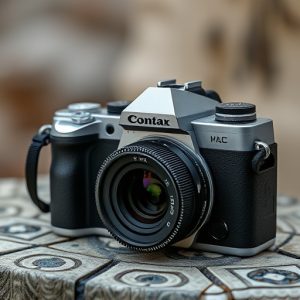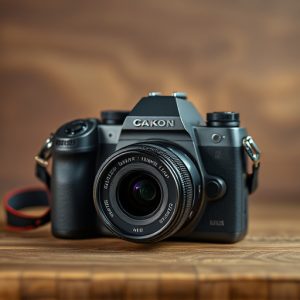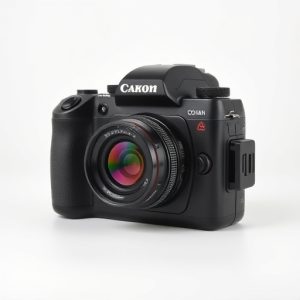Body Camera Laws: Navigating Legalities, Policy Variations, and Market Options
The deployment of body cameras in law enforcement has led to significant advancements in both techn…….
The deployment of body cameras in law enforcement has led to significant advancements in both technology and regulatory frameworks. As these devices, including those available as body cameras for sale, become more sophisticated with features like high-definition recording and prolonged battery life, the legal landscape governing their use has become increasingly complex due to variability in state and federal regulations across different jurisdictions. Agencies must be well-versed in local laws to ensure compliance with rules regarding activation, retention, sharing, and handling of footage, with some states advocating for public access under specific conditions and others imposing strict controls on its dissemination. The article section addresses the diverse policies affecting body camera usage, influenced by legal statutes, societal expectations, and technological progress. With the market for body cameras expanding, offering products ranging from basic to advanced models with features like real-time streaming and robust encryption, there is an urgent need for tailored policies that protect privacy and manage data responsibly. Body cameras have become indispensable in modern policing, enhancing transparency, officer safety, and accountability. They serve as objective recorders of police interactions, deterring misconduct and providing crucial evidence during investigations. When selecting a body camera for sale, it's essential to consider high-resolution capabilities, wide-angle lenses, durability, long battery life, ample data storage, secure data transmission, and privacy protection features to ensure effective monitoring, accountability, and compliance with legal standards and societal privacy expectations. The integration of body cameras must be balanced with the protection of individual privacy rights, necessitating strict adherence to privacy laws and continuous advancements in both technology and policy measures to maintain public trust.
body cameras have become a contentious topic within law enforcement communities, raising questions about privacy, accountability, and civil liberties. This article delves into the evolving legal frameworks surrounding body camera deployment and usage, highlighting jurisdictional differences that impact how officers utilize these devices. We explore the pivotal role of body cameras in modern policing, analyze the key factors to consider when selecting a body camera for sale, and address concerns regarding privacy compliance. Join us as we navigate the complexities of body camera laws and policies to ensure informed and effective use in law enforcement contexts.
Navigating the Legal Landscape of Body Camera Deployment and Usage
In recent years, the deployment and usage of body cameras by law enforcement have become a topic of significant discussion and policy development. As these devices become more ubiquitous and advanced, the legal landscape governing their use is evolving to address privacy concerns, accountability, and data management. Bodies camera for sale are available to various agencies, offering features like high-definition recording and long battery life. However, navigating this legal terrain requires a nuanced understanding of state and federal regulations that dictate when and how these cameras can be activated, what footage can be retained or shared, and the protocols for accessing and handling recordings. Each jurisdiction may have specific requirements or guidelines that influence the procurement and operation of body cameras, making it imperative for agencies to stay informed about local laws. The legislation also varies regarding public access to footage, with some states mandating the release of body camera footage under certain circumstances, while others maintain strict controls over its dissemination. This variability underscores the importance of due diligence by agencies in selecting body cameras for sale that not only meet their operational needs but also comply with the intricate legal frameworks governing their use. Agencies must consider the potential for these devices to serve as a record of interactions between officers and civilians, thereby enhancing transparency and trust within communities they serve.
Understanding the Jurisdictional Variations in Body Camera Policies
When delving into the realm of body camera regulations, one must consider the myriad of jurisdictional variations that exist across different regions and municipalities. These variations are shaped by legal frameworks, community expectations, and technological advancements. For instance, some states may mandate that law enforcement officers use body cameras as a matter of policy, while others leave the decision to the discretion of individual departments. Within these jurisdictions, the specifications for body camera usage can differ significantly; from how footage is recorded and stored to who has access to the data.
The market for body cameras has seen considerable growth, with a variety of models available for purchase, each offering distinct features and capabilities. Body camera for sale options range from basic, cost-effective devices to more sophisticated units equipped with high-resolution recording, real-time streaming, and advanced data encryption. The proliferation of these devices necessitates comprehensive policies that address privacy concerns, data management, and the handling of recorded content. As such, it is crucial for agencies to tailor their body camera policies to align with both state laws and the specific needs of their communities, ensuring transparency, accountability, and effectiveness in law enforcement operations.
The Role of Body Cameras in Law Enforcement: A Closer Look
Body cameras have become a pivotal tool in modern law enforcement, offering both transparency and protection to officers while on duty. These devices serve as an objective recording medium, capturing interactions between law enforcement personnel and civilians from the perspective of the officer. The footage they provide can significantly contribute to investigations, providing clear evidence that can clarify incidents where use of force has been a concern. As public scrutiny of police actions increases, body cameras act as a deterrent to misconduct and a means to uphold accountability.
The proliferation of body camera for sale in the market has led to more police departments acquiring these devices. The choice of a body camera system is critical, as it must be reliable, user-friendly, and capable of capturing high-quality footage under various lighting conditions. These cameras are not just about recording; they also play a role in de-escalating situations by reminding officers that their actions are being recorded. This can lead to more measured responses during potentially volatile encounters. Furthermore, the availability of body camera for sale ensures that departments can select models that best fit their operational needs and budgetary constraints, thereby integrating this technology into their daily operations effectively.
Selecting a Body Camera for Sale: Key Considerations for Effective Monitoring
When selecting a body camera for sale that will facilitate effective monitoring and accountability, it’s crucial to consider several technical and practical aspects. Firstly, the recording quality should be high enough to capture clear footage in various lighting conditions. A camera with at least 1080p resolution is recommended to ensure that details are discernible. Additionally, the field of view is a significant factor; a wide-angle lens can capture more of the surroundings, which is particularly beneficial in dynamic environments.
Another important consideration is the camera’s durability and design. Since body cameras are used in various settings, from urban patrols to natural environment monitoring, they must be resistant to dust, water, and shocks. Look for models with a sturdy build and an interface that can withstand everyday use without compromising functionality. Furthermore, the battery life of the camera is pivotal; extended shifts require cameras with long-lasting batteries or efficient charging options. Other essential features include data storage capacity, easy data retrieval, and secure data transmission to comply with legal standards. When purchasing a body camera for sale, it’s imperative to ensure that it aligns with the local laws and regulations governing their use, as well as privacy concerns and data protection requirements. This due diligence will guarantee that the chosen equipment serves its intended purpose of enhancing transparency and ensuring public trust in monitoring activities.
Compliance with Privacy and Civil Liberties Concerns in Body Camera Use
As law enforcement agencies increasingly adopt body cameras as part of their operations, compliance with privacy and civil liberties concerns remains a paramount focus. The deployment of body cameras for sale must be balanced with the rights of individuals to privacy. Legislation across various jurisdictions has been enacted to address these issues, establishing clear guidelines on when and how footage can be recorded, stored, and accessed. These laws often mandate that officers must inform individuals of the recording, except in situations where doing so could compromise public safety or hinder a criminal investigation. The data captured by body cameras is sensitive, and stringent policies are necessary to protect personal information and prevent misuse. Additionally, the retention and release of footage are governed by specific protocols to ensure transparency while safeguarding privacy. The integration of privacy-protecting technologies, such as redaction tools and data encryption, is also critical in maintaining the confidentiality of sensitive recordings. As a result, body cameras for sale are becoming more sophisticated, incorporating features that align with evolving legal standards and societal expectations regarding privacy preservation. The ongoing development and refinement of these technologies and accompanying policies are essential to fostering public trust and ensuring that body camera use serves its intended purpose without infringing on civil liberties.


